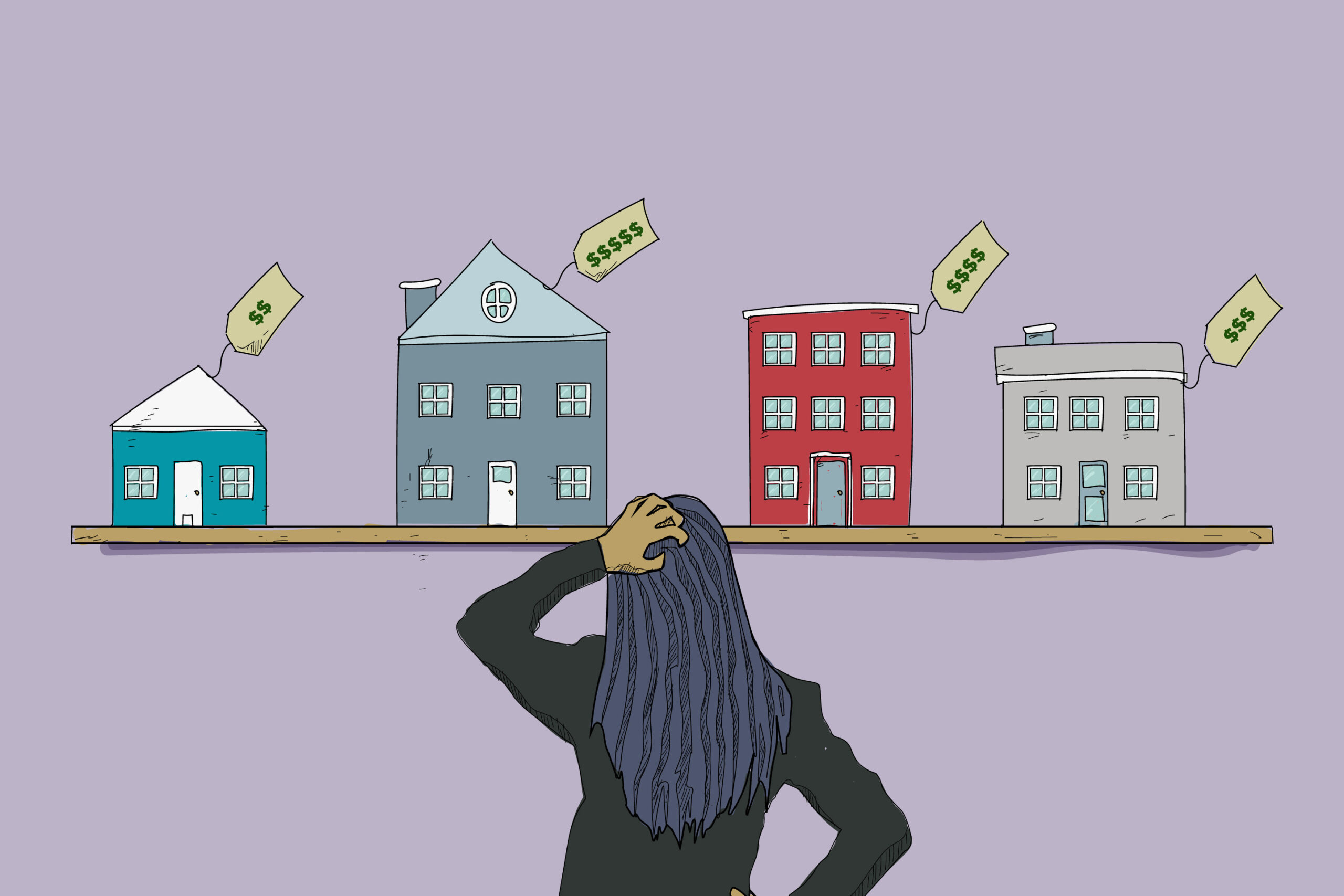Becoming a homeowner can be a great decision for many Americans, but you don’t want to bite off more than you can chew. While it’s true that owning a home is cheaper than renting, there are several one-time and ongoing costs you need to prepare for before you start shopping.
How Much Can I Actually Afford for a Home?
When shopping for loans, lenders look at your annual income, monthly debts, and down payment before approving you. While your credit rating and debt-to-income ratio can block you from gaining approval, lenders won’t give out more than they think you can afford to pay back.
Even if you can afford a million-dollar home, banks want to make sure you aren’t stretching your budget too thin to make your monthly mortgage payments. Getting preapproved for a mortgage will help you understand what you can afford based on factors we’ll discuss in this article.
If you want to have a ballpark estimate before you speak with a lender, use a house affordability calculator, like the one at Home & Money. That way, you can avoid the hard credit check.
What Home Expenses Should I Budget For?
There are 11 major home-based expenses you have to budget for before shopping for a new home. These include but aren’t limited to mortgage payments, insurance, and closing costs.
1. Mortgage Payments
One of the most obvious regular payments you’ll make is your mortgage payments. Lenders will add interest to the principal, so you’ll end up paying more than the original cost of the home. The automation period, mortgage type, and frequency will affect your monthly payments.
2. Down Payment
Under regular circumstances, no lender will give you a mortgage unless you put at least 5% down towards your home. Scrounging up a higher down payment is preferred because it will reduce the total cost of your home, which also lowers your monthly mortgage payments.
3. Property Taxes
Every year you’ll have to pay property taxes on your home. This cost varies widely depending on where your home is located, the size of your home, and the number of sidewalks that border your property. If you have a mortgage, you’ll pay this cost in monthly installments to your lender.

4. Mortgage Insurance
If you put less than 20% down on your home, you’ll have to pay for mortgage insurance. This expense varies depending on your down payment and the type of mortgage you have. Once you pay down the loan to an LTV ratio of 80%, you can request to cancel your insurance.
5. Homeowners Insurance
Homeowners insurance is another expense that comes with having a mortgage. However, homeowners insurance is pretty useful because it covers you in the event of a fire, and you can write off this expense on your taxes. Keep in mind that basic insurance doesn’t cover floods.
6. Escrow Payments
Your property taxes, mortgage insurance, and homeowners insurance are added to your mortgage payment and deposited into your escrow account each month. However, this account doesn’t start at zero. You have to make an initial deposit into your escrow account at closing.
7. Closing Costs
Speaking of closing costs, homeowners must pay 1% to 3% of a home’s purchase price once the property’s transaction is finalized. Common closing costs include title insurance, document prep fees, lender’s feeds, credit report fees, appraisal costs, and mortgage point fees.
8. Mortgage Points
Although mortgage points are an optional expense, you may want to look into purchasing a few. If you pay this expense at closing, you’ll reduce your interest rate over the term of the loan. Reducing your interest rate by even 1% could save you thousands of dollars on your loan.
9. Homeowners Association (HOA) Fee
If you’re buying a townhouse, condo, or a new home in a neighborhood (gated or otherwise), you probably have to pay an HOA. This fee covers expenses like area and yard maintenance, building insurance, a community pool, cable, among other things. Fees vary based on location.
10. Utilities and Garbage Collection
Most apartment buildings don’t expect their tenants to pay utilities like cable, electricity, water, heat, internet, and garbage collection. However, homeowners have to pay for these costs out of pocket, which could raise their monthly expenses to $600-$1000 or more per month.
11. Maintenance
When something broke down in your rental property, your landlord or apartment complex would take care of it for you. Now, you’re in charge of all of your maintenance expenses, year after year. As a general rule, you’ll pay 1% of your home’s value per year in maintenance “fees.”






